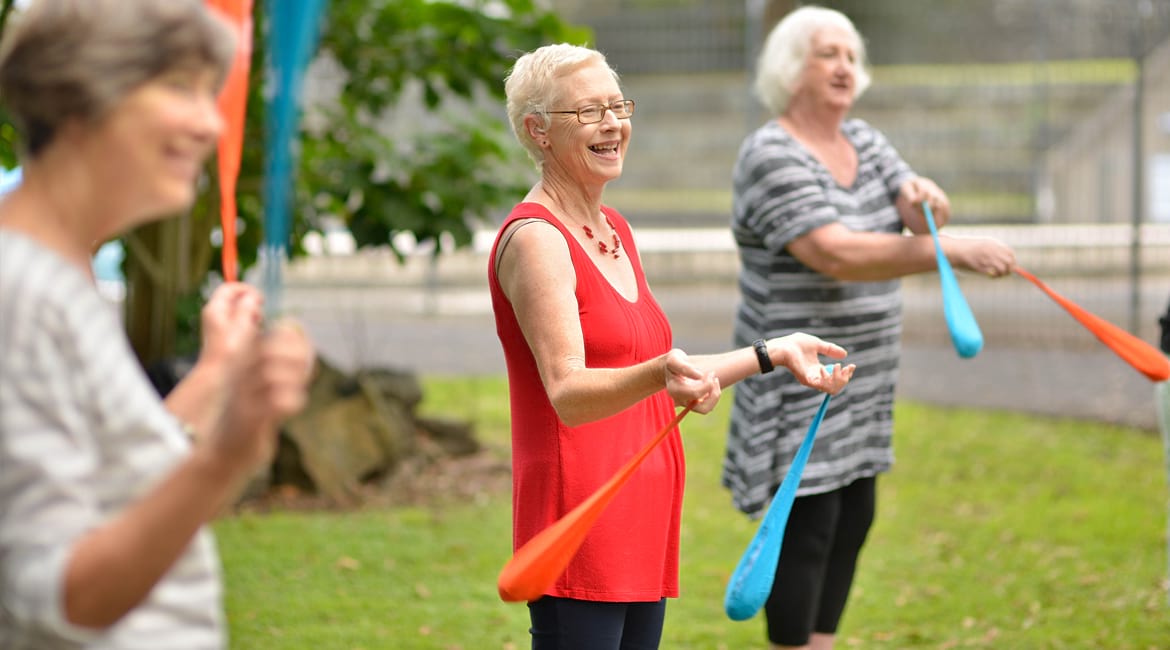What poi can do for your health
Originally published in NewsRoom, July 2018

Most kiwis know that poi is a Māori tradition. You may have seen dazzling displays in kapa haka, or even done poi yourself in primary school. But did you know there are many different styles of poi practiced all over the world? And, that twirling poi can improve your health?
The origins of poi date back to the beginning of time, with the union of Papatūānuku and Ranginui. As poi Māori exponent Ngāmoni Huata explains, “Poi embodies whakapapa and the connection to the land and continuity of the culture through growth, hence the spiritual existence of poi is rooted in the beginnings of time.” [1] It is believed that poi was originally used by men to train strength and flexibility, and by women as a form of entertainment. Today, poi has gained international popularity. From Māori short poi to poi that can be light on fire, it is practiced for recreation and artistic performance across the globe.
A recent study conducted at the University of Auckland was the first to scientifically evaluate the health benefits of poi. Seventy-nine healthy older adults, aged 60 to 86 years old, took part in the study. They were randomly assigned to either learn poi or Tai Chi twice a week for one month. Before and after the lessons, their physical, cognitive, and emotional wellbeing were measured. The study found significant improvements in grip strength, balance, and attention for both the poi and Tai Chi group. Dr. Kate Riegle van West, lead researcher, says “these results are really exciting because grip strength, balance, and attention are some of the hallmarks of frailty. Not only that, but it shows poi may be just as effective as Tai Chi, a gold standard of exercise for older adults.”
Of particular interest to Riegle van West is maintaining quality of life as we age. We are currently experiencing unprecedented population ageing worldwide, with older adults projected to outnumber youth for the first time in history. [2] The increase in our aging population is due to the fact that we are living longer. What’s important to note is that having a longer lifespan (the years we are alive) does not necessarily mean we have a longer healthspan (the years we spend in good health). Simple, effective, affordable strategies for maintaining our quality of life are needed now more than ever.
Kate is currently putting the results of her research into action, by implementing poi programs at retirement villages in New Zealand. She hopes these programs may help maintain or improve quality of life for older adults. She also hopes to expand her poi/health vision much further: “Poi is such a fun, affordable, accessible tool, and it engages both the body and mind. With the boom in our ageing population I think working with older adults is a great place to start, but I think poi has the potential to improve wellbeing in so many different contexts, such as in schools, at work, in community centres…the possibilities are endless!”
Considering poi through a health lens may also have special implications within Māoridom. The ageing Māori population has significantly higher rates of diabetes, high blood pressure, cardiovascular disease, cancer, and a shorter life expectancy than non-Māori populations in New Zealand. [3] This may potentially be due to the lack of exercise opportunities in New Zealand provided in a whānau based context. While Māori poi practitioners are already well aware of the physical, cognitive, emotional, and spiritual benefits of poi, new research on poi and health may create new possibilities for this Māori taonga within a health and wellness context.
The bottom line? We are living longer than ever before, and it is important to be proactive about maintaining our health in our latter years. By taking a few moments to twirl a poi you are challenging both the body and mind, and it’s important to remember that the brain is like the body in that if you don’t use it, you lose it. What’s even better is that playing poi is fun! So go ahead, pick up a poi and spin your health around.
Kate is the founder of SpinPoi, and has a passion for how movement and play can improve wellbeing.
References
- Huata, N. (2000). The Rhythm and Life of Poia. New Zealand: Harper Colllins Publishers.
- World Health Organization (2017a). World Health Day Toolkit. Retrieved from http://www.who.int/world-health-day/2012/toolkit/background/en/
- Ministry of Health (2011). Tatau kura tangata: Health of older Māori chart book 2011. Wellington, NZ: Ministry of Health. Retrieved from https://www.health.govt.nz/system/files/documents/publications/health-of-older-maori-chartbook-2011-mar2011.pdf
